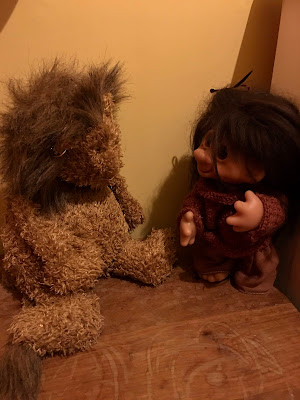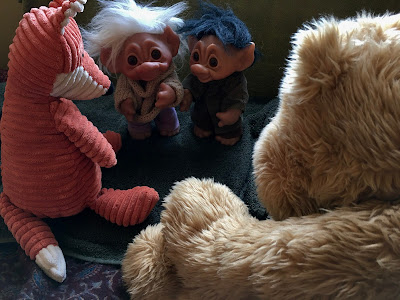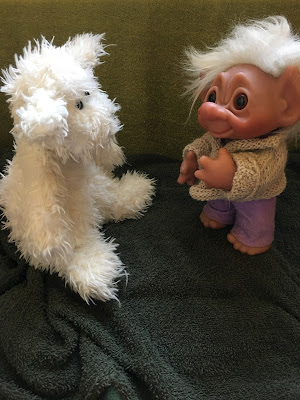Friday, 25 December 2020
Into the Heart of Advent — Chapter 25 – The Infant Light
Thursday, 24 December 2020
Wednesday, 23 December 2020
Tuesday, 22 December 2020
Monday, 21 December 2020
Sunday, 20 December 2020
Saturday, 19 December 2020
Friday, 18 December 2020
Thursday, 17 December 2020
Wednesday, 16 December 2020
Tuesday, 15 December 2020
Monday, 14 December 2020
Sunday, 13 December 2020
Into the Heart of Advent — Chapter 13 — THE MAGI
Saturday, 12 December 2020
Into the Heart of Advent — Chapter 12 — STARLIGHT
Friday, 11 December 2020
Thursday, 10 December 2020
Wednesday, 9 December 2020
Tuesday, 8 December 2020
Monday, 7 December 2020
Sunday, 6 December 2020
Saturday, 5 December 2020
Friday, 4 December 2020
Thursday, 3 December 2020
Wednesday, 2 December 2020
Homecoming 1
There were honestly some times when Danshari wondered if they ever would see Ananda and Kanso again. But he took courage from the thought that they had gone searching with George Fox on one side and the Great Bear on the other side, and how could you have better companions than that?
Even so, the days went by slowly, with still no sign of the lost Granny at all.
Sophia kept her children cheerful by singing them Anawim songs that she knew off by heart, and they all helped with peeling potatoes for supper and cooking sausages over the campfire, skewered on sticks.
When she could be bothered to do it, Yūgen sometimes made them all hot chocolate — but sometimes she felt rather overwhelmed by making drinks for so many people and told them to just go to the fridge and the cupboard and get their own. So the Anawim children all learned how to make hot chocolate — which is a useful skill, don’t you think?
“Where can they have got to?”, Ebenezer asked Sophia. She felt very shocked when Sophia explained to her that the place they had come from was very dangerous, and it was easy for people to get lost there — sometimes for ever. You could be attacked, and have your things stolen.
“I expect Kanso and Ananda will have gone to the police station to ask the police to help them, then,” said Ebenezer. But Sophia said she didn’t think they would. And when Ebenezer asked her why, Sophia explained that it was the police who had attacked them — hitting them with truncheons (those are special sticks police officers carry), and spraying tear gas into their eyes to hurt them, and turning on big jets of water from hoses to knock them down and make them soaking wet. “The police tore up our tents,” Sophia explained, and broke up our things. They took away our blankets and our sleeping bags, and tipped our rice out of the bags into the mud.”
Ebenezer almost fell off her chair, she was so astonished. When she could speak, her voice came out a bit wobbly because she felt so shocked. “Why did the police do those dreadful things?”, she asked. “Was it just some bad police? Had they been drinking?”
Sophia smiled at her. “No,” she said. “It was just because we are Anawim. They came every day — every single day — to do those things to us. They wanted to drive us away.”
“But . . .” Ebenezer thought about this . . . “where was there for you to go? I thought the place that used to be your home had been all destroyed in a war.”
“That’s right,” said Sophia. “We had nowhere else to go. That’s why, in the end, we came here.”
Ebenezer couldn’t thing of a single thing to say about all this. It was the most dreadful thing she had ever heard. She had thought a person would be safe once they got to the police station. She had never imagined it would all be different if you were one of the Anawim. She began to worry a lot about Kanso and Ananda, and the Granny.
Then, one day, when they had almost given up hope, they heard Buji out in the garden shouting “Granny! Granny! Granny!” — over and over again, like that.
And up the garden path came Ursa and George Fox with Kanso and Ananda, bringing Shanti (the lost Granny) safely home.
“Whatever on earth happened to you?” Ebenezer demanded to know, just as soon as they had all had a chance to get their breath back and sit down by the fire, and Wabi and Sabi had made them all a nice hot cup of tea.
Kanso told them that when the search party arrived at the place where their tent had been — thinking that was the best place to go and look, even though it had all been torn up and trashed and their belongings had been thrown about ad trampled by the police — they still found no sign of Shanti.
But they had found an Anawim man sleeping in a big cardboard box at the roadside, who told them the police had brought a bus to that place, and taken away all the Anawim people who were still there.
This was where George Fox came to the rescue. I’m not sure if you know this, but a fox is a very good finder, good at sniffing things out. And George Fox went here and went there, talking to this person and that, making friends all over the place. He was able to find out where the police had taken Shanti, so they went there to look for her.
It was a big old carpet factory, with a yard that had a high fence round the car park at the back, and on the top of the fence was rolled up razor wire. You can’t climb over razor wire without cutting yourself badly. Inside the fence, they could see the Anawim people the police had taken away; and they saw that one of them was Shanti.
I have no idea what you will think about what George Fox did next. He waited until darkness fell, and found a quiet place where he cut through the wire. They didn’t ask permission, or fill in a form, or anything like that. Kanso just crept in through the hole George Fox had made, and he went quietly into the building and found Shanti, and got her out. It was an escape. They were very lucky nobody saw them. Well, it wasn’t all luck, they were extremely stealthy. But as soon as they had Shanti safely out of there, they hurried away without looking back. And they didn’t mend the hole in the fence when they left. They thought it might be handy for the Anawim prisoners still inside.
Sitting around the campfire, all agog, the animals and the Anawim children and Sophia listened in silence to this story.
And then Serena, in a very small voice, asked, “Did you manage to get it, Granny?”
Get what?
Tuesday, 1 December 2020
Into the Heart of Advent — Chapter 1 — THE HOLY FAMILY
Monday, 30 November 2020
#1 Introduction to Into the Heart of Advent
Sunday, 29 November 2020
Advent 1 Sermon for Campfire Church 29/11/2020 (Grace Garner)
Thursday, 19 November 2020
Anawim sisters
Ready to meet the sisters in the Anawim family's children? You remember the brothers? Wabi and Sabi who are twins.
They belong together, and people often mix them up, but they are quite distinct. if you made friends with them, you would soon see the difference—that Wabi is a gentle, solitary kind of person, who just likes being quietly on his own outside in the garden. Sabi likes things that are comfy and scruffy — his favourite old sweater that he's had since time began, and his mug that may be chipped and tea-stained but is somehow indefinably perfect. They are happy in each other's company, content with the simple things in life.
And their brother Hineni, always eager to help and cheerful from the moment he opens his eyes in the morning. If someone is wanted to run up to the store, or give a hand with washing up the tea things, Hineni is usually the very first to volunteer. "I'll go," he says, "I'll help! I'll do it!" Nine times out of ten, it's Hineni who brings the Haffenhaff in from the pasture, and milks her in the evening.
So, do you feel as though you are getting to know the Anawim children a bit better — the boys, anyway? And you remember their mother is called Sophia, and their father is Kanso, and their Grandad is Ananda, and the lost Granny is called Shanti.
If I took this page away, could you remember all of that? My, doesn't it take some doing, to get to know people?!
On to the sisters in the Anawim, family, then.
This is Irene.
She is younger than Wabi and Sabi, but older than Hineni. I think you would like Irene. She's what we sometimes call a peace-maker. Irene smooths things over — and don't we always need someone who has such a valuable gift? Irene never ruffles your feathers. Somehow, things just flow along with her.
Then comes Hineni, and after that is Serena.
I would like you to look carefully at Serena. She's another quiet and gentle soul — she just flows along like a river with no one really watching it, she gets on with life without being a bother to anyone (I hope you do, as well). But I would say — I may be wrong — that Serena looks just a little bit worried in this photograph. I wonder if she has something on her mind?
Two more sisters to go.
Almost, but not quite, the youngest child is Buji. What a sweetheart.
Buji is a contented spirit. Somehow, you only have to look at her, and you know everything will be all right in the end. There is something about Buji that makes you feel safe and secure.
And then we come to Shekinah, the baby of the family.
Here's Sophia carrying her, because Shekinah was tired at the time. It had been a long day.
Shekinah is one of those naturally happy people. A shining spirit. She is a child full of faith. When things go wrong and times are difficult, Shekinah is like the ember that you can light a new fire from. Even though she is only little, she sees the light in things. It is a great gift.
That feels like a very big family.
Look — here they all are, on the day they set out from home. As you can see, that was before they lost Shanti. There she is, right in the middle of them, where she belongs.
They didn't leave home just for fun, you know. A whole lot of things went terribly wrong.
First of all, the desert was getting bigger, and the wind blew sand all over the vegetables in their garden. But they didn't panic; the knew what to do about that. They knew you have to make berms (do you know what those are?) to catch the rain when it fell, and plant trees and lots and lots of plants, leaving no bare earth at all. Then the wind can't blow it away. They saved all their vegetable scraps to make compost, and they had chickens and Lavinia the Haffenhaff to fertilise (do you know that word?) the garden. They worked hard and managed to keep a little patch of green alive.
But then war came to their country. People were angry and frightened, partly because they were hungry after their farms and gardens started turning to desert. Soon the place was full of soldiers in uniforms and men with guns. Kanso was told he had to go and fight, and he didn't want to do it. He is a brave man, as full of courage as he is kind — it was just that he didn't want to kill anybody. So the army said they were going to come and put him in prison.
While they were trying to decide whatever to do, some people set their house on fire. They only just had time to grab what really mattered to them, and run away.
They had some money in the bank that the grown-ups had been saving for a long time, and they used it all up on two things. They bought an i-phone — I think you know how important and useful that is. It has a torch and maps and your email and a clock and a telephone and means you can pay for things without needing money in your pocket (though you still need some money in the bank of course).
The second thing they bought was a place for each one of them on a boat across the sea. This wasn't a big boat like a cruise ship with cabins and lovely things to eat. It was just an inflatable (that means you have to blow it up) dinghy, nothing more. And they had to be smuggled — had to go at night. The Anawim knew all about the Great Bear before they even met her in person. They saw her in the stars.
When they arrived on our island, they had their phone, and a very tiny bit of money left in the bank. Enough for some groceries, but not enough for a house to live in, not even a rented one. Not even a caravan. All they had left was each other, and hope, and trust in God. Which is how they came to turn up in the garden. They needed some help.
So, do you remember their names?
Ananda and Shanti.
Kanso and Sophia.
Then Wabi and Sabi,
Irene,
Hineni,
Serena,
Buji
and little Shekinah.
You know what I think? They did almighty well to get Lavinia across the sea on a rubber dinghy! I don't think I could have done it.
But I wonder what was worrying Serena?
Wednesday, 18 November 2020
Talking round the fire
They never imagined so many days would go by with no sign of the lost Granny. They thought she would be just nearby, somewhere down the track. Maybe she had been picking mushrooms and got left behind, or sat down for a snooze and not know which way everyone else had gone when she woke up. But the sun went down . . . and rose . . . and set . . . over many days, with no sign of the Great Bear or Yūgen or George Fox or the Anawim men — and no lost Granny.
While they were waiting — Danshari and Hanafubuki and the Anawim mother and children — they spun out the time in conversation.
The Anawim children practised saying "Danshari" and "Hanafubuki", and the lion and the unicorn tried Haffenhaff milk in their tea — it was nice.
When you meet someone new, you start with finding out who they are. And then you learn about where they have come from, and what they like and what they do.
This is what Danshari and Hanafubuki learned.
The Anawim mother's name was Sophia. Their father — away searching for the lost Granny — was called Kanso. The Grandad's name was Ananda.
"What was your Granny's name, again?", asked Hanafubuki.
"She is called Shanti," said Sophia.
And then of course all the children had names as well, but I don't want you to drown in new names!
There's Danshari (you know him)
Hanafubuki
Ebenezer
Sophia (chatting to Danshari)
Kanso
Ananda (with his grandson Hineni).
And the lost Granny is Shanti.
Can you manage a couple more?
In the picture with Kanso are his twins, Wabi and Sabi. You mostly find them together.
Here they are with Danshari and Hineni, sitting by the fire.
What a lot of new names to take in! And of course, Wabi and Sabi and Hineni had four sisters as well! Perhaps we'd better leave them for next time.
By the way — when the evening came, the day the Anawim arrived in the garden, after Danshari had lit the fire and they were all sitting round it, eventually Irusu crept in to sit with them.
They just let her come back. They didn't say anything. Sometimes it's better not to.
To her surprise, Irusu found it was okay, sitting talking with the Anawim. She liked them. They were quiet and kind, with soft voices — not overwhelming at all.
She listened carefully, with Danshari and Ebenezer and Hanafubuki, to the story of their travels — which had been long and dangerous and full of adventure. When she heard all that had happened to them, Irusu began to feel really glad they had found this safe and peaceful place beside the fire. She began to hope the lost Granny would soon be found, so they could all come home safely, and be part of the family.
Sunday, 15 November 2020
The lost Granny
It is obvious to you and to me that when a Granny becomes lost it is a matter of utmost urgency that she be found and re-united with her family, because that is where she belongs.
Well — some Grannies are not very keen on their families and don’t care if they never see them again, but that is not usual. The one in our story — the Anawim Granny — had not (as far as anyone knew) wandered away on purpose in the hope of shaking off her family and vanishing. Some Grannies might, but not this one.
So it was immediately apparent to everyone that a search party must be organised with the utmost despatch (that means Very Quickly).
Who should go and look for the Granny, and who should stay safely in the garden? A brief discussion ensued to sort this out.
The party of Anawim who had surprisingly arrived in the garden included a Grandad who went with the Granny. Understandably he was anxious to look for his wife. There were four grown-ups among these Anawim, and one of them — the one who had stepped forward bravely to greet everyone, saying “Namaste” — was the son of the Granny and Grandad. All these people have names, and we’ll get to that eventually. So naturally he also wanted to hurry off and look for his mother.
It was a matter of agreement that children who have travelled so far (these ones had come a long and perilous way) should be given some supper and brought inside where it is warm and dry, and allowed to watch telly then snuggle down and go to sleep. I mean, you wouldn’t make a child sleep out in the rain and wind and say they couldn’t come in — would you? Who would do that? You’d have to be mad, or at least very cruel.
So the Anawim children didn’t go looking for their Granny, though some of them wanted to because they were worried about her.
And everyone agreed that if the children were not going, then their mother should stay with them and not go looking for Granny. Besides which, someone had to keep an eye on the Haffenhaff now she was here in the garden.
So that was settled.
Of the animals, the Great Bear was the most obvious person to go looking for Granny, because she is a star.
I must pause to explain something here.
When I say the Great Bear is a star, I mean, really.
Sometimes there are people who have been in movies or become famous for singing or working in television programmes, and we say they are stars. This is a good description; they move in their own firmament remote from our lives, where we can see them but not reach them. They appear very shiny and marvellous to our eyes. A lot of them seem mainly to come out at night. But of course, they are not really stars. Although they have white teeth and expensive clothes, and somebody to carefully do their hair and spray them with fake suntan, underneath all that they are just people who eat and sleep and sometimes find life a struggle, just like you and me.
But the Great Bear really is a star.
There are two bears among the stars in the night sky. There is Ursa Minor, the Little Bear, a constellation in the Northern Sky, who looks like this.
Her tail looks a bit like the handle of a ladle, so they also call her the Little Dipper.
Standing near her is Ursa Major, the Great Bear.
She is the biggest constellation in the Northern Sky and her brightest stars form the shape we call the Plough (or the Big Dipper).
Here they are, the Little Bear and the Great Bear, standing near each other in the sky.
The northern axis of the Earth points directly towards the Northern Star — the Pole Star. So if you are facing the Northern Star, you have found true north. Then West is on your left, East is on your right, and South is behind you. Knowing how to find the Northern Star in the night sky is an essential survival skill. If you can do that, you can find your direction even in the darkest night. In the olden days, people relied on the Northern Star to find their way through the wilderness.
To find the North Star, first you look for the Plough, the seven bright stars in the constellation of the Great Bear. You imagine a line pointing through the two stars on the edge of the Plough towards the brightest star at the end of the tail of the Little Bear. That’s Polaris, the Northern Star. Once you’ve found that, you can find your way.
So the Great Bear holds the secret to finding your way. Everyone agreed she should go with the two Anawim men to look for the lost Granny.
George Fox has clear sight and a good nose for the truth. If you are unsure and searching, consulting George Fox is a good plan. So he went with them.
Nimby wouldn’t come out of the compost bin, and I’m sorry to have to tell you he didn’t even care if the Granny was lost for ever and died of starvation or a broken heart — one Anawim less was a Good Thing in Nimby’s opinion, and he didn’t much care where she was so long as that place was not the garden where he lived in such peace and contentment. So he didn’t go and look for her, as I expect you’ve gathered.
Irusu — well, a dog is good at finding things and people, but first you have to find the dog.
They looked on the deck.
They looked in the yard.
They looked in the woodpile.
They looked in the vegetable garden.
They looked in the shrubbery.
They couldn’t find her anywhere. Can you?
So the long and the short of it is, they didn’t take Irusu.
At this point, Yūgen the sheep wandered onto the scene, and Danshari hurriedly explained who all these new people were and what was going on. Yūgen understood.
Yūgen has a feeling for life that is both subtle and profound, a sense of the oneness of all life, the universality of being. This is remarkably helpful in seeing how everything fits together and helping reality come home.
When the Anawim described to her their lost Granny, with her cloud of white hair, she felt an immediate affinity for her. Even though the island is heavily populated with such Grannies, Yūgen felt confident she would be able to find her.
Ebenezer looked worried. “Yūgen,” she said — “you will only bring one Granny home, won’t you? Don’t bring a selection.”
“It’s okay,” Yūgen reassured her; “I have a feeling for where each one belongs.”
So Yūgen went with the search party. Before they set out, she asked the Anawim Grandad, “What is the Granny’s name?”
“Her name is Shanti,” he said.
Yūgen nodded. “Shanti is a beautiful name,” she says.
“She is a beautiful person,” the Anawim Grandad answers her quietly.
“Well, we will find her,” says Yūgen.
And off they go, seeking True North, on the trail of the Missing Granny.
Danshari’s mission in life is more to do with sorting things out and throwing them away than herding them up and bringing them home, so everyone decided he didn’t have the skills required for finding a roving Granny, and he took the Anawim mother and all the Anawim children inside where Ebenezer had gone to put the kettle on and look for orange juice and biscuits. The Haffenhaff was allowed to stay outside and play in the garden, with strict instructions not to wander off too far — one Displaced Person is surely enough for one day.
“Come and meet Hanafubuki,” said Danshari to the Anawim. “Come in and make yourselves at home. Let’s light the fire.” He added, reassuringly, “I’m sure everything will be all right. We’ll find your Granny and bring her back to you. It’ll all be okay in the end.”









































